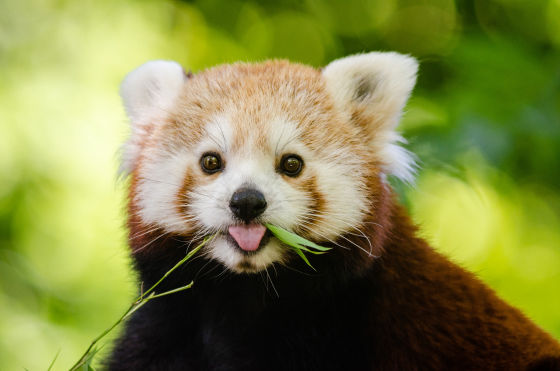The rate of extinction of mammals accelerates and recovery of diversity takes over 5 million years

by Harvey Sapir
More than 300 kinds of mammals have been extinct due to human activity, and this was announced in the latest research, "It means that the history of evolution was lost by 2.5 billion years." In modern times the pace of extinction of mammals is accelerating and even if poaching and environmental pollution disappears in the next 50 years it will take 500 to 7 million years for the natural world to recover.
Mammal diversity will take millions of years to recover from the current biodiversity crisis | PNAS
http://www.pnas.org/content/early/2018/10/09/1804906115
Mammals can not evolve fast enough to escape current extinction crisis - ScienceDaily
https://www.sciencedaily.com/releases/2018/10/181015154435.htm
Humanity is 'cutting down the tree of life', warn scientists | Environment | The Guardian
https://www.theguardian.com/environment/2018/oct/15/humanity-is-cutting-down-the-tree-of-life-warn-scientists
There have been five major annihilation events on Earth on Earth. In the past five annihilation events called Big Five, many plants and animals have been extinct due to the sudden change in the global environment due to gamma ray burst , global cooling, and collision of meteorites. Later on, evolution gave birth to new seeds, and the creatures slowly increased their diversity.
As of 2018, it is said that the sixth mass extinction is about to take place. However, this time the changes in the global environment are not natural disasters but human beings. Research by researchers at Aarhus University in Denmark and Gothenburg University in Sweden has shown that if the next extinction occurs, it will take millions of years for the natural world to recover diversity.
On the earth, the extinction of the background that one species is extinct but another species is born is always happening, but it is said that the possibility of losing biodiversity by background extinction is very low.
However, according to researchers, the extinction pace of animals occurring in modern times seems to be 22 times faster than it should be. This is a pace at which it is predicted that "50% of species will disappear at the end of the century if this trend continues" in another study. Even if the destruction of wildlife habitat and poaching, environmental pollution, etc. are gone and the extinction pace returns to the original, it is necessary to recover the natural world after 50 years to the condition until the evolution of the present human beings 500 ~ It took seven million years and researchers showed it takes 300 to 5 million years to recover to the current level.

by Mathias Appel
This research is characterized by considering the "phylogenetic diversity" which is not just counting the number of animals extinct but counting how much time has passed since the extinct animals appeared on the earth Has become.
Thirakoreo and McLaukeia, which once existed in Australia, were mosquitoes with few closely related organisms. When such an animal dies out, it means that "all branches of the evolution tree are cut". When species that do not have closely related organisms are extinct, not only the species will be lost, but the unique ecological role of the species and the history of evolution that has lasted millions of years will be lost. In fact, the ecosystem was greatly affected when mammoth was extinct. In particular, it is said that the influence of large mammals is great.
" Zinnama chestnuts and Kendo tigers that were extinct 10,000 years ago had evolved distinctly from other species, as they had few closely related organisms, their extinction was the evolutionary tree It means that all of the branches have been cut off, "said paleontologist Matt Davis, who studied. "There are hundreds of species in the shrews , so even if several species are lost, they will not be extinct, but Dendritis explained that the four horseshoe turfs were extinct because they existed," Davis explained .
Studies have shown that 300 species of mammals have already been lost by human activities and the history of evolution for 2.5 billion years has been lost.
According to the calculations of researchers, the history of evolution of 2 billion years has been lost due to the extinction of mammals, from the birth of modern human beings until 1500 AD. From 1500 to the present day, the history of evolution for another 500 million years has been lost. If the modern extinction pace continues in the future, the researcher sees that the history of 1.8 billion years is lost 50 years later.

by icon0.com
"The results of this research will help focus our attention on the species to preserve and help us to give priority to" preserve species, "Davis said to Davis, a botanist at Stony Brook, New York University, Douglas Futuyma also agrees. "Researchers have shown the dramatic and persuasive content of how much evolutionary diversity has been lost so far.I think that what is important is already known , Human beings have erased not only many living things but also "many creatures of living things", Futuyma says. Mr. Futuyma also mentioned that although the identity itself of evolution itself can be recovered, species such as elephants can not be recovered once they are lost.
Related Posts:
in Creature, Posted by darkhorse_log







